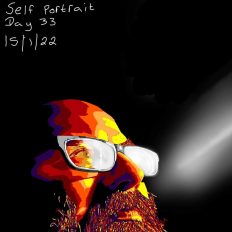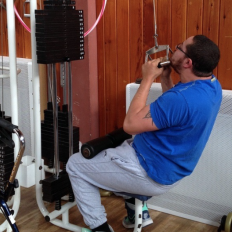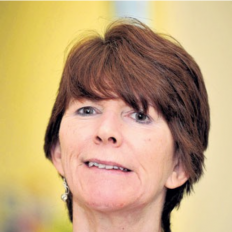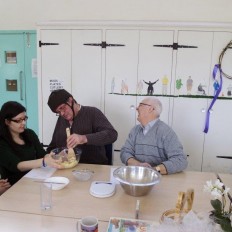
Chris’s Story
"I do not know what I would have done if it wasn't for Headway - they have really helped me with my rehabilitation." Chris had a life-changing road...
An acquired brain injury (ABI) is defined as any injury or damage to the brain that occurs after a period of normal development (in other words not prior to or at the moment of birth).
The main causes of an injury to the brain are trauma (e.g. from a car accident, fall or assault), vascular (e.g. different types of stroke such as blockages or bleeds), infections (e.g. encephalitis, meningitis), brain tumours or lack of oxygen to the brain (anoxic damage e.g. due to prolonged heart failure, partial drowning, strangulation). These different kinds of injury can affect the brain in different ways, and some are more common in certain age groups, for example falls in younger children and older people.
An ABI usually requires different kinds of treatment or rehabilitation over time. At the time of the injury medical treatment is required immediately to save lives and minimise possible future difficulties.
The pattern of injury can vary greatly, so at any point after an ABI it is important for biological, psychological and social factors to be understood and addressed in order to maximise the chances of a good outcome. Children need particular support as the developing brain is more vulnerable and new problems can emerge at any point throughout the child’s development.
An ABI can have a devastating effect not only on the individual but also family members and friends, so attention to their needs is also important.
Our colleagues at the brain injury charity, Headway Norfolk & Waveney are producing a series of podcasts, ‘Headpods‘ and we’re delighted to be able to share with you the first one in the series: Our podcast series Headpods – Headway (headway-nw.org.uk)
For more information about Headway Norfolk & Waveney, please read here.

"I do not know what I would have done if it wasn't for Headway - they have really helped me with my rehabilitation." Chris had a life-changing road...

My name is Keeley Donachie. I’m 38 years old and on the 14th of December 2021 my life changed, I was admitted to hospital with a suspected...

Liam acquired his brain injury in 2012, when he was just twenty six. Two years later, in his late twenties, he’s still living with the effects –...

In 2001, 60-year-old Lesley was driving home from a doctor’s appointment when she suddenly began experiencing severe pains in her head and started...

Janet is a 35-year old team manager of thirteen staff who fell down the stairs at work and sustained a brain injury known as Post-concussion....

Bob was at home when he suffered a stroke in 2011. He was found on the floor and was taken straight to hospital. He spent some time on the stroke...